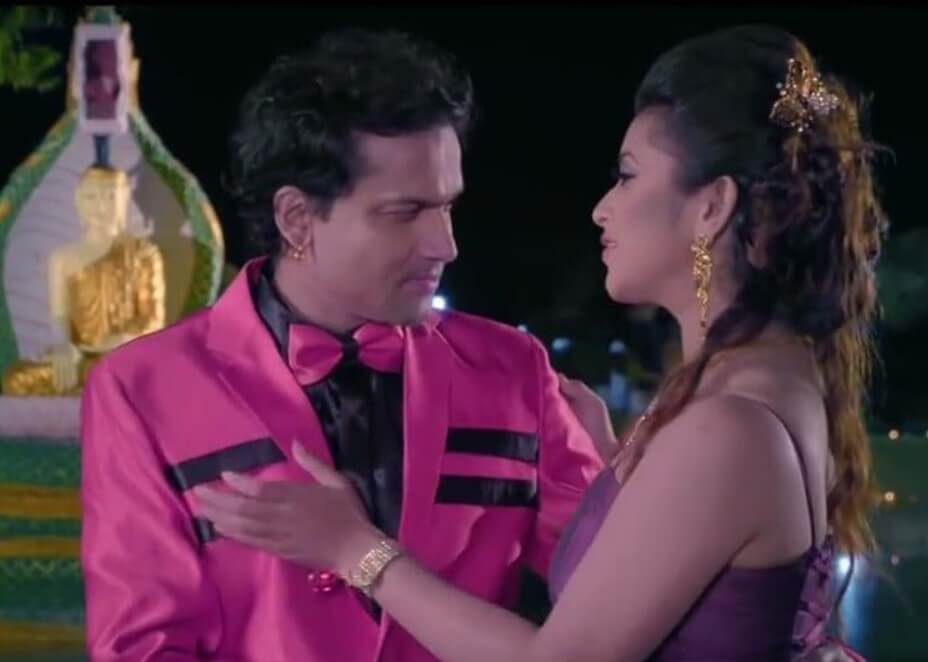Zubeen Garg: 10 Incredible Achievements of Assam’s Legendary Music Icon

Zubeen Garg is widely recognized in modern Indian music, especially in the northeastern state of Assam. His impact on music, cinema, and cultural life has earned him respect not only in Assam but throughout India. This article explores Zubeen Garg's journey from a small town in Assam to becoming one of the most influential artists in the country, shedding light on his life, career, and legacy.
Early Life and Background

Birth and Family Heritage
Zubeen Garg was born as Zubeen Borthakur on November 18, 1972, in the town of Tura in Meghalaya, India. His parents, Mohini Borthakur and Ily Borthakur, were deeply rooted in the cultural heritage of Assam. His father, a well-known lyricist and poet, wrote under the pen name Kapil Thakur. Zubeen was named after the famous composer Zubin Mehta by his father, which shows the musical inclinations of his family right from the beginning.
Childhood and Early Influences
Growing up in a culturally rich environment, Zubeen was exposed to music and art from a very young age. His mother was a dancer and encouraged Zubeen and his siblings to pursue their artistic interests. Zubeen showed a keen interest in music early on and was trained in classical music. His father’s influence, combined with the rich folk traditions of Assam, played a significant role in shaping his musical style.
Education and Early Musical Training
Zubeen’s formal education took place in Jorhat, Assam. However, his passion for music often took precedence over his academic pursuits. He began his music training under the guidance of Guru Romoni Rai, a renowned classical singer, and further honed his skills under several other mentors. His early exposure to various forms of music, including folk, classical, and contemporary, laid a strong foundation for his future career.
Musical Career Beginnings

Initial Struggles and Breakthrough
Zubeen’s journey in the music industry was not without its struggles. Despite his talent, he faced numerous challenges in making a mark in the competitive music scene. His big break came in the early 1990s when he released his first Assamese album, Anamika. The album was a huge success, and Zubeen became an overnight sensation in Assam. The song “Maya” from the album became particularly popular and is still loved by his fans.
Rise to Fame in Assam
Following the success of Anamika, Zubeen released several more albums that solidified his position as a leading artist in Assam. His unique style, which blended traditional Assamese music with modern elements, resonated with the youth of the state. Albums like Asha and Mukha became hugely popular, establishing Zubeen as a household name in Assam. His ability to connect with the local culture while introducing contemporary sounds made his music both relatable and innovative.
Foray into Bollywood
Zubeen’s talent was not confined to Assam. His big break in Bollywood came with the song “Ya Ali” from the 2006 movie Gangster. The song was a massive hit across India and catapulted Zubeen to national fame. “Ya Ali” showcased Zubeen’s versatility as a singer and his ability to infuse emotion into his performances. The success of this song opened doors for Zubeen in the Hindi film industry, and he went on to sing for several other Bollywood films.
Contribution to Assamese Music and Cinema
Reviving Assamese Folk Music
One of Zubeen’s most significant contributions to Assamese music is his efforts to revive and popularize Assamese folk music. Through his albums and performances, Zubeen brought traditional Assamese songs and instruments to the forefront, giving them a modern twist that appealed to younger audiences. His work has played a crucial role in preserving Assam’s rich musical heritage and ensuring that it continues to thrive in contemporary times.
Zubeen as a Music Director
In addition to being a singer, Zubeen is also a talented music director. He has composed music for several Assamese films and albums, showcasing his versatility and deep understanding of music. His work as a music director has been widely appreciated, and he has won numerous awards for his contributions to Assamese cinema. His ability to create music that resonates with the local culture while also appealing to broader audiences has made him a key figure in the industry.
Acting Career
Zubeen Garg is not just a musician but also a talented actor. He made his acting debut with the Assamese film Tumi Mur Mathu Mur in 2000. Over the years, he has acted in several Assamese films, often playing lead roles. His performances have been well-received, and he has shown that his talents extend beyond music. Some of his notable films include Mon Jai, Mission China, and Kanchanjangha. His involvement in cinema has further cemented his status as a multifaceted artist.
Contribution to Assamese Cinema
Zubeen’s contributions to Assamese cinema go beyond acting and music. He has been actively involved in the production and direction of films, contributing to the overall growth of the industry. His film Mission China, released in 2017, was a major commercial success and marked a new era in Assamese cinema. The film, directed and produced by Zubeen, received praise for its technical quality and storytelling, setting a new benchmark for regional films.
Personal Life and Philosophy
Family Life
Despite his fame, Zubeen has always kept his personal life relatively private. He is married to Garima Saikia, who is also actively involved in the entertainment industry. The couple has often been seen working together on various projects, and Garima has been a significant support system for Zubeen throughout his career. Their partnership, both personal and professional, is admired by many.
Social and Political Involvement
Zubeen Garg is known for his outspoken views on social and political issues. He has been actively involved in various social causes, using his fame to raise awareness and advocate for change. Whether it’s speaking out against corruption or supporting environmental causes, Zubeen has never shied away from expressing his opinions. His involvement in social issues has made him a role model for many, especially the youth in Assam.
Philosophy and Beliefs
Zubeen’s music and life are deeply influenced by his beliefs and philosophy. He often talks about the importance of staying true to one’s roots and the need to preserve cultural heritage. At the same time, he believes in embracing change and innovation. His music reflects this philosophy, blending tradition with modernity in a way that appeals to a wide audience. Zubeen’s approach to life is one of balance, where he respects the past while looking forward to the future.
Awards and Recognition
National and Regional Awards
Over the years, Zubeen Garg has received numerous awards and accolades for his contributions to music and cinema. He has won several prestigious awards, including the National Film Award for Best Music Direction and multiple Filmfare Awards in the regional category. In Assam, he has been honored with several awards for his work in promoting Assamese culture and music. These awards are a testament to his talent and the impact he has had on the industry.
Cultural Impact
Zubeen’s impact on Assamese culture cannot be overstated. He has played a pivotal role in bringing Assamese music to a broader audience, both within India and internationally. His efforts in reviving traditional music and his contributions to the film industry have made him a cultural icon in Assam. Zubeen’s influence extends beyond music and cinema; he has become a symbol of Assamese pride and identity.
Global Recognition
While Zubeen is a household name in Assam, his talent has also been recognized on the global stage. His music has reached audiences beyond India, and he has performed at various international events. Zubeen’s ability to connect with diverse audiences through his music has made him a global ambassador for Assamese culture.
Discography and Filmography
Notable Albums
Zubeen Garg’s discography is extensive, with numerous albums in various languages. Some of his most notable albums include:
- Anamika (1992): Zubeen’s debut album that catapulted him to fame in Assam.
- Mukha (1994): An album that solidified Zubeen’s place as a leading artist in Assam.
- Chandini Raat (1995): One of his most popular albums, featuring a mix of traditional and contemporary songs.
- Zindagi (2004): A Hindi album that showcased Zubeen’s versatility and appeal to a broader audience.
Popular Songs
Zubeen has sung hundreds of songs over the years, but some of his most popular tracks include:
- “Ya Ali” from Gangster (2006)
- “Maya” from Anamika (1992)
- “Sokule” from Chandini Raat (1995)
- “Mon Jai” from Mon Jai (2008)
- “Dil Tu Hi Bataa” from Krrish 3 (2013)
Films

Zubeen has acted in and contributed to the music of numerous films. Some of his notable films include:
- Tumi Mur Mathu Mur (2000): Zubeen’s acting debut.
- Mon Jai (2008): A film that received critical acclaim and showcased Zubeen’s acting skills.
- Mission China (2017): A blockbuster film directed and produced by Zubeen.
- Kanchanjangha (2019): Another successful film that further established Zubeen’s credentials as a filmmaker.
Legacy and Influence
Impact on Assamese Music
Zubeen Garg’s influence on Assamese music is unparalleled. He has played a crucial role in modernizing Assamese music while keeping its traditional roots intact. His efforts have not only revived interest in Assamese folk music but have also ensured that it remains relevant to contemporary audiences. Zubeen’s work has inspired a new generation of artists who look up to him as a mentor and role model.
Mentorship and Support for Young Artists
Zubeen has always been supportive of young and upcoming artists. He often collaborates with new talents and provides them with a platform to showcase their skills. His encouragement and mentorship have helped many artists to establish themselves in the industry. Zubeen’s willingness to share his knowledge and experience with others is a testament to his dedication to the growth of the Assamese music industry.
Cultural Ambassador
Zubeen Garg is more than just a musician; he is a cultural ambassador for Assam. Through his music, films, and public appearances, Zubeen has helped to bring Assamese culture to the forefront. He has represented Assam at various national and international events, promoting the state’s rich cultural heritage. His work has not only made him a beloved figure in Assam but has also introduced Assamese culture to a global audience.
Philanthropy and Social Contributions
In addition to his artistic contributions, Zubeen is also known for his philanthropic work. He has been involved in various charitable activities, particularly in the fields of education and healthcare. Zubeen believes in giving back to society and often uses his platform to raise funds for various causes. His commitment to social work has earned him respect and admiration from all sections of society.
Frequently Asked Questions (FAQs)
1. What are some of Zubeen Garg’s most popular songs?
Some of Zubeen Garg’s most popular songs include “Ya Ali” from Gangster, “Maya” from Anamika, “Mon Jai” from Mon Jai, and “Dil Tu Hi Bataa” from Krrish 3. These songs have resonated with audiences across India and are considered some of his best work.
2. Has Zubeen Garg won any national awards?
Yes, Zubeen Garg has won several national awards, including the National Film Award for Best Music Direction. He has also won multiple Filmfare Awards in the regional category, recognizing his contributions to Assamese music and cinema.
3. What is Zubeen Garg’s contribution to Assamese cinema?
Zubeen Garg has made significant contributions to Assamese cinema as an actor, music director, and filmmaker. He has acted in several films, composed music for numerous movies, and has been involved in the production and direction of films like Mission China, which was a major commercial success.
4. How has Zubeen Garg influenced Assamese music?
Zubeen Garg has played a crucial role in modernizing Assamese music while preserving its traditional elements. His efforts to revive Assamese folk music and introduce contemporary sounds have made him a pivotal figure in the industry. He has inspired a new generation of artists and ensured that Assamese music continues to thrive.
5. What social causes is Zubeen Garg involved in?
Zubeen Garg is actively involved in various social causes, including education, healthcare, and environmental conservation. He often uses his platform to raise awareness and funds for these causes and is known for his philanthropic work in Assam.
6. What was Zubeen Garg’s first big break in Bollywood?
Zubeen Garg’s first big break in Bollywood came with the song “Ya Ali” from the 2006 movie Gangster. The song was a massive hit and catapulted Zubeen to national fame, opening doors for him in the Hindi film industry.
Conclusion
Zubeen Garg is undoubtedly one of the most influential and versatile artists in India. His contributions to music, cinema, and cultural life have made him a beloved figure not just in Assam but across the country. From his early struggles to his rise to fame, Zubeen’s journey is a testament to his talent, hard work, and dedication. His efforts to preserve and promote Assamese culture, his social contributions, and his role as a mentor to young artists have cemented his legacy as a true cultural icon. Zubeen Garg’s impact on Indian music and cinema will continue to be felt for generations to come, and his work will inspire countless others to follow in his footsteps.





